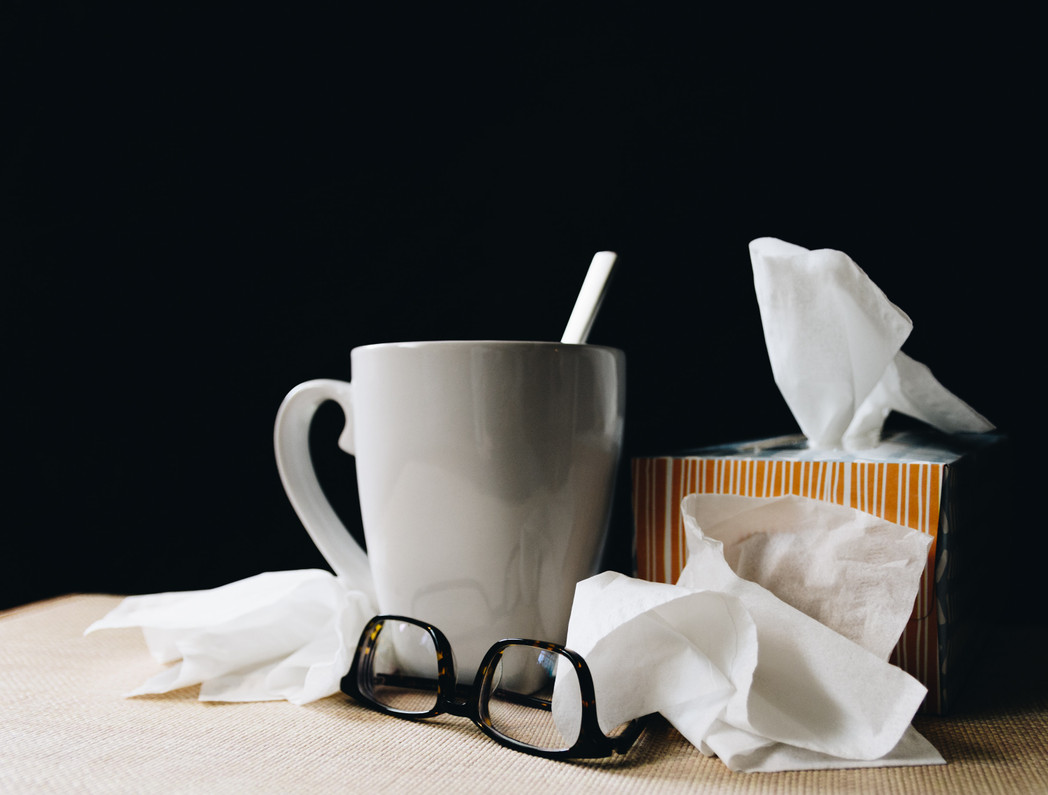Stay Healthy This Cold and Flu Season: Your Ultimate Guide to Combating Symptoms
When Is Cold and Flu Season?
The CDC measures cold and flu season from October to March, with peak activity in December and February. For the purposes of this guide, we’re talking about the fall and winter months when cold and flu – and a range of other respiratory conditions – are most common.
How to Stay Healthy During Cold and Flu Season
Cold & Flu Prevention is Preferable to After-The-Fact Care
Before we look at relieving cold and flu symptoms, it's vital to understand the preventative measures you can take to stop yourself from becoming ill in the first place.
1. Vaccination. Getting an annual flu shot is your best defense against the virus, as it is updated each year to protect you against newer influenza mutations. While you can still get flu – the CDC puts the effectiveness of the flu jab at preventing illness anywhere between 40% and 60% due to how quickly the virus mutates – a vaccination will also mean you experience milder symptoms if you do become ill.
2. Hand hygiene. Much of the advice we kept hearing in the early stages of the COVID-19 pandemic also applies to cold and flu season, and that is certainly the case when it comes to washing your hands. This is the simplest and most effective means of reducing your risk of becoming ill during cold and flu season. Try to always carryhand sanitizer, too.
3. Avoid touching your face. Did you know that, on average, we touch our face between three and four times an hour? Touching our face is the most common way we transfer viruses into our body, so try to avoid it – or make sure your hands are always clean if you can't stop yourself!
4. Stay away from sick people. Colds and flu are usually only contagious when someone exhibits symptoms, so it should be relatively simple to avoid people who are ill, so long as they're not a family member. The World Health Organization recommends staying a meter away from people who are coughing, sneezing, or have a fever.
Support Your Immune System With Your Diet & Supplements
Your diet and nutrition are instrumental in supporting and boosting your immune system. While it’s always best to get as many of your essential nutrients and vitamins as possible from whole foods, some of the best supplements for fighting a cold include vitamin C, which has immune-boosting properties, and zinc, which is known to reduce the severity and duration of cold symptoms.
And remember the advice your doctor always gives you when you're ill: drink plenty of fluids. While hydration is essential for robust health at all times, drinking water, herbal teas, and broth drinks can help thin mucus and keep your throat moist. If you're well-hydrated, you might catch a cold and shake it off without realizing you were ill!
Learn to Recognize the Signs Your Body is Fighting a Cold or Flu Virus
Rest and recovery are powerful allies in the fight against colds and flu. Rest allows your body to heal and strengthens your immune system, making it more effective in dealing with your illness. Learn to recognize the signs your body is fighting a cold or a flu virus so you know when you need to rest and focus on getting a good night's sleep.
These bodily warning signs include:
- Nasal congestion
- A sore throat
- Headaches
- Muscle aches and general fatigue
- Coughing and sneezing
- A fever
- A feeling of pressure in your ears and face
- A loss of taste and smell
You likely have a common cold if you only have nasal congestion and a sore throat. The presence of the other symptoms means that you likely have the flu. If you’ve had the flu before, you’ll be able to tell the difference!
Try and Stay Active, Too
If your symptoms are mild, low-intensity activity like walking or yoga can help boost your immune system and speed up your recovery.
But if you feel so unwell that even a walk would leave you tired, choose instead to rest.
Stock Up on Over-the-Counter Cold & Flu Remedies
Most of the time, you'll be able to get through the cold and flu season with over-the-counter remedies. If you're already taking prescribed medication or painkillers like paracetamol or ibuprofen for other conditions, it is best to speak to your doctor or a pharmacist about dealing with your cold or flu.
Check out our cough, cold, and flu remedies to ensure you have all your essentials ahead of cold and flu season.
Natural Cold & Flu Remedies
If you’d rather try using natural remedies to cure your cold and flu symptoms – or you’re already taking medication for other conditions that would interact negatively with cold and flu medicines – then you’re in luck! There are several things you can consume and do that will help you shake off your symptoms, including:
- Drinking hot water with honey and lemon. This can soothe a sore throat and suppress a cough.
- Drinking ginger tea. Ginger is anti-inflammatory, so it will help reduce your symptoms. Plus, it tastes great!
- Inhaling steam from a bowl of hot water, which can help to clear nasal congestion.
Control the Controllables To Stay Healthy This Cold and Flu Season
In truth, it's nearly impossible to avoid colds and flu entirely, especially during peak season. But, at the same time, you're now equipped with a comprehensive set of tips that will help you avoid getting ill and minimize their impact on your life if you do. Remember, it's always a good idea to consult with a healthcare professional about any health concerns or before changing your wellness routine. With that said, we certainly hope you enjoy a healthy and resilient cold and flu season!
Recent Posts
-
Most Effective Medications for Different Spring Allergy Symptoms
Springtime can feel like a breath of fresh air after the biting cold of winter. But for many of us, …18th Apr 2024 -
How to Relieve Spring Allergies Naturally & Effectively
As springtime unfurls its striking colors and warmth - or at least warmer temperatures - we can look …18th Apr 2024 -
How to Avoid Getting Sick When Spring Weather Changes Arrive
As we wave goodbye to winter and cold, biting winds turn to a light, refreshing breeze, it’s only na …22nd Mar 2024




